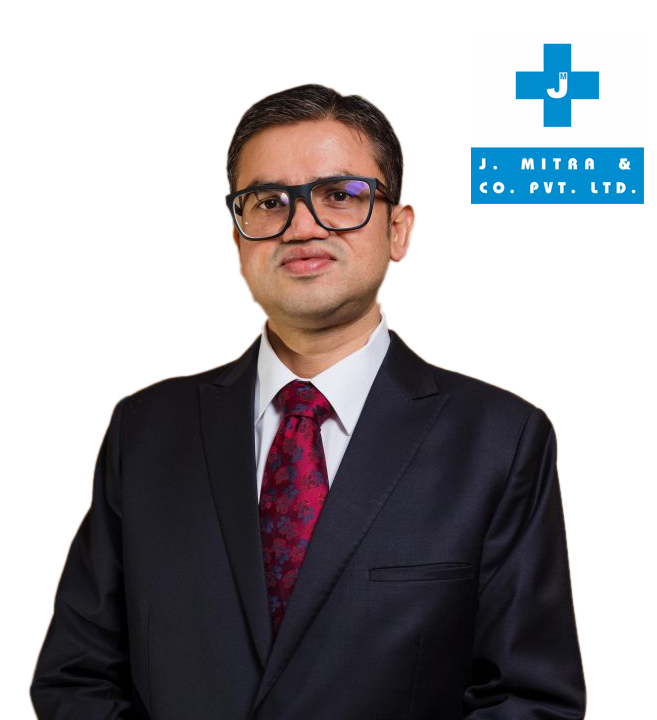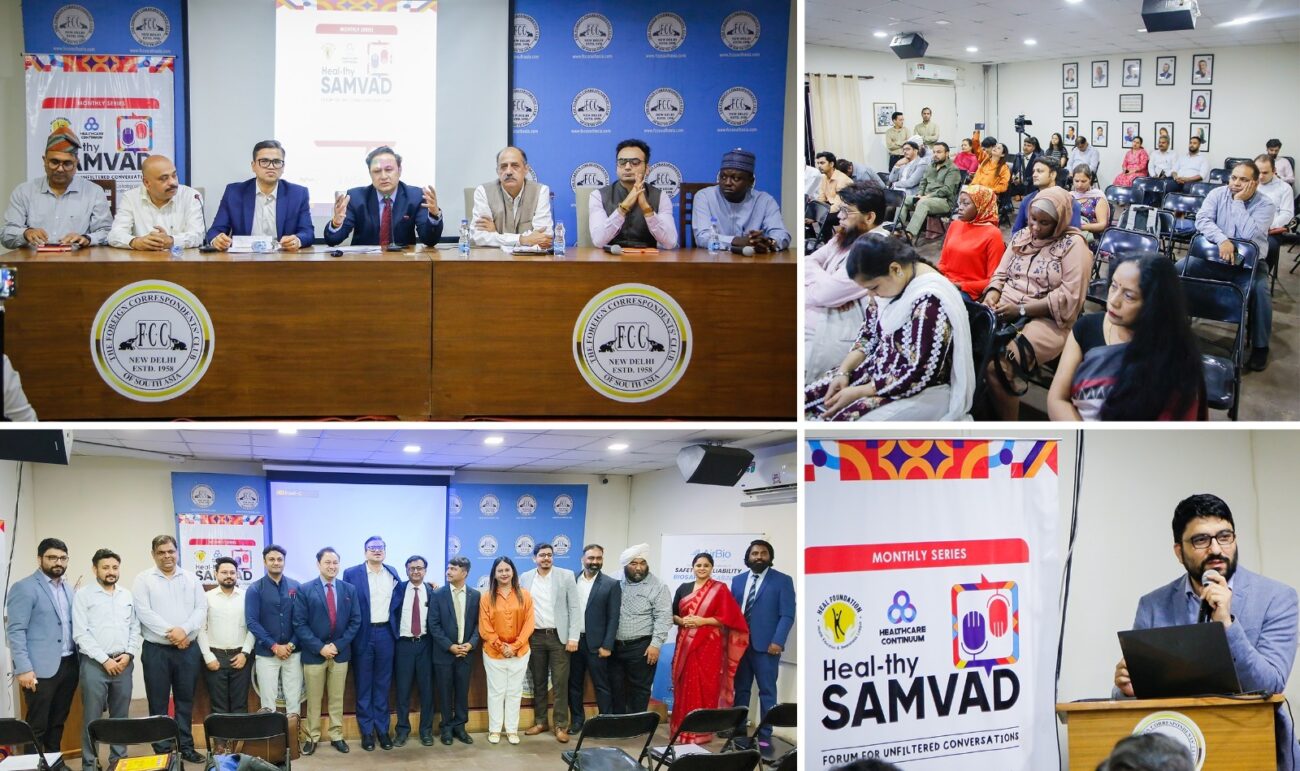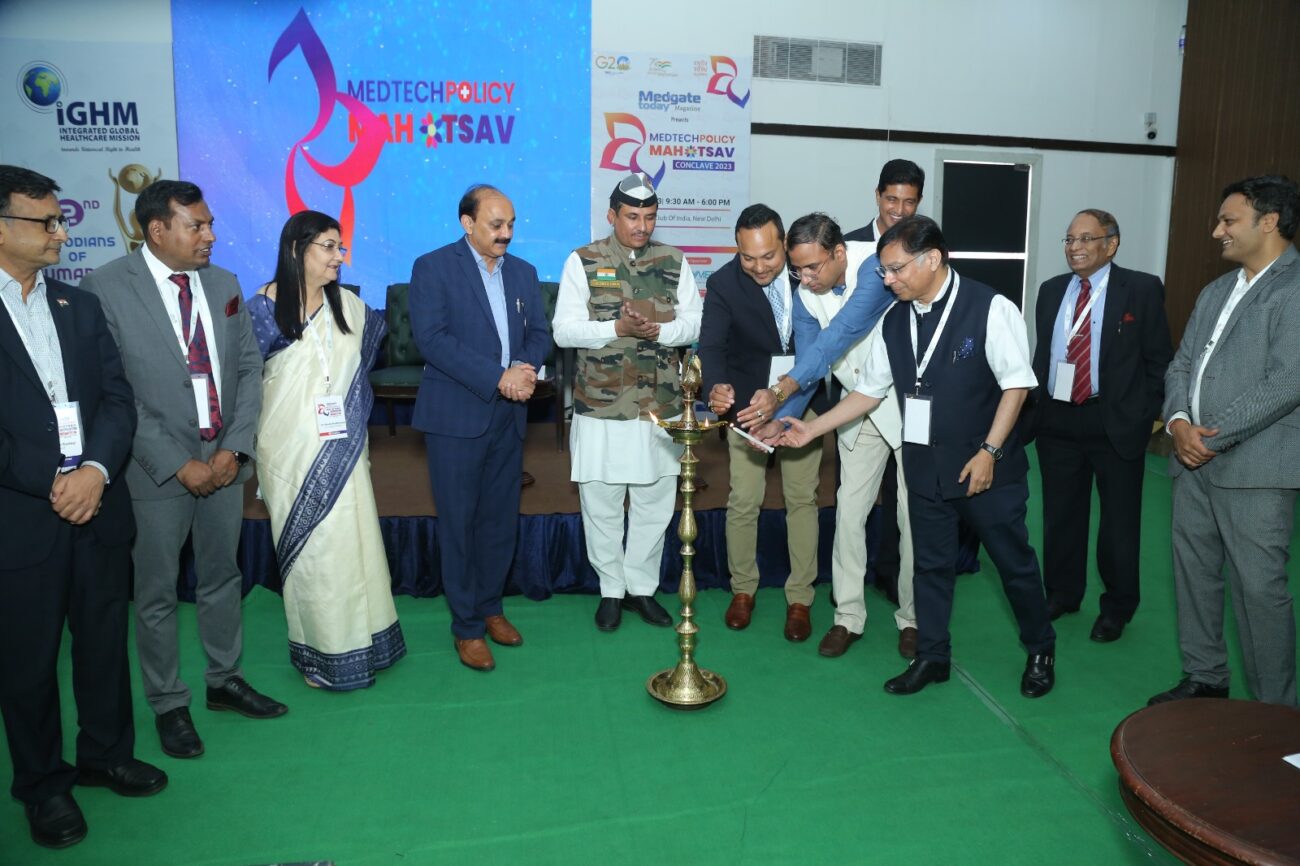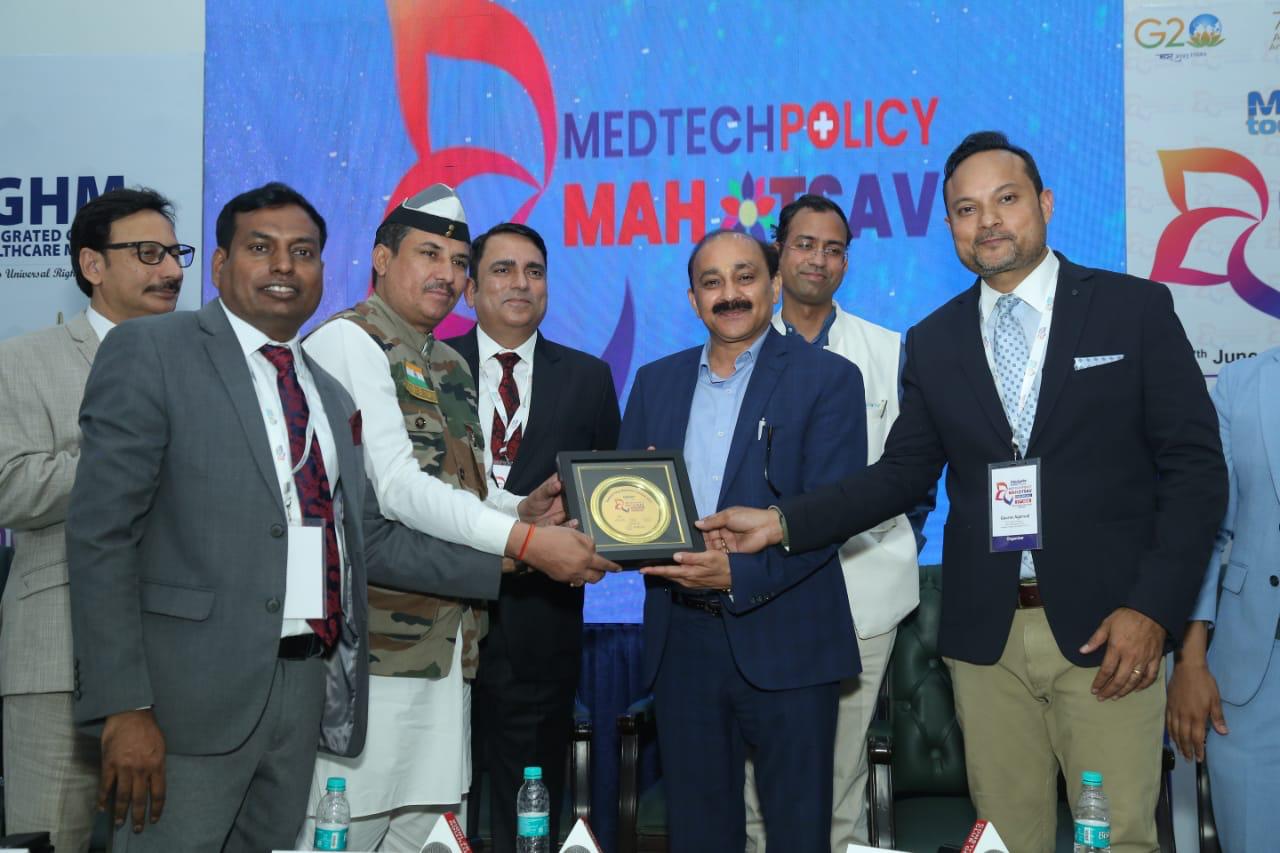Jatin mahajan SECRETARY – ADMI (ASSOCIATION OF DIAGNOSTIC MANUFACTURERS OF INDIA) In today’s changing healthcare environment, it's clear that change is the only constant, and diagnostics play a critical role in this dynamic landscape. The diagnostics sector

Jatin mahajan
SECRETARY – ADMI (ASSOCIATION OF DIAGNOSTIC MANUFACTURERS OF INDIA)
In today’s changing healthcare environment, it’s clear that change is the only constant, and diagnostics play a critical role in this dynamic landscape. The diagnostics sector is leading the way in a healthcare revolution, utilising cutting-edge technologies that have the potential to transform how we approach treatment.
Various emerging technologies are converging in this field, such as integrating intelligence (AI) advancements in biopsy technology, the popularity of point-of-care testing digital health platforms, and the expanding use of genomic medicine. These innovations offer promise for improving health outcomes. We are entering a future where diagnostics will not just be a supporting actor but a central figure in care.
Artificial Intelligence – The Game Changer
At the heart of this megatransformation lies AI’s advent and extensive adoption in diagnostics. As healthcare generates incredible amounts of data, the ability to interpret this data efficiently and accurately becomes crucial. AI plays this vital role in diagnostics by leveraging its capacity to handle and analyse datasets. Advanced AI algorithms have the potential to analyse images, recognise patterns, and diagnose diseases with an unprecedented level of speed and precision that surpasses human capabilities.
This technology aims to decrease mistakes, enhance the efficiency of healthcare services, and bring about notable improvements in patient results. The confident incorporation of AI into processes represents more than an upgrade; it signifies a shift towards a proactive and preventive healthcare model.
On-Demand Accessibility with Point-of-Care Testing
Point-of-care (POC) testing stands out as an advancement in reshaping diagnostics. Facilitating tests at or near the location of patient care POC testing disrupts the laboratorybased diagnostic approach. Offering timely patient-focused diagnostics beyond lab setups empowers healthcare professionals to swiftly make well-informed decisions, leading to faster implementation of suitable treatment. With investment in innovations and mobile technologies, POC testing can potentially make diagnostics more reachable in the most remote areas globally. This immediacy in diagnostics provides convenience and saves lives by reducing treatment time and enhancing patient outcomes.
Liquid Biopsy – Setting a New Benchmark in Detection
Progress in liquid biopsy technology is transforming cancer diagnostics to a new level. Unlike biopsy methods, liquid biopsies provide a less invasive means of cancer detection. They use a blood sample to detect bits of tumour DNA, enabling early detection. Liquid biopsy also has the potential to aid healthcare providers in tracking disease progression and treatment response in real time, leading to a new era of patientcentred care. The clinical implications are significant as they provide insights into the landscape of tumours without procedures.
Digital Health Platforms – Revolutionising Patient Engagement
The increasing presence of health platforms showcases the growing impact of technology on engaging patients and coordinating care. These platforms integrate health records, telemedicine, remote patient monitoring and mobile health apps to provide access to healthcare services, facilitate proactive, evidence-based treatment decisions, and empower patients to manage their health better. Their ability to monitor real-time data and provide virtual consultations underscores the diagnostics industry’s shift towards an interconnected patient-centric healthcare approach.
Genomic Medicine – Pioneering Personalised Healthcare
We gain insights into how genetic factors influence disease progression and treatment responses by analysing an individual’s genetic composition. This has transformed diagnostics from detecting diseases to almost predicting the possibilities of various diseases and ailments with a significant degree of accuracy.
Evaluating a patient’s tendency to illness, predicting how patients will respond to treatments, and tailoring treatment plans are aspects of precision medicine. This shift toward personalised healthcare places the patient at the centre of attention. Medicine’s role in diagnosis highlights the importance of care, ensuring that treatments work effectively and align with each patient’s genetic makeup.
These developments indicate that we are moving towards a future where diagnosis will play an even more critical and dominant role. By utilising these path-breaking technologies, we anticipate a revolution driving us toward precise, accessible, and patientfocused healthcare. Shaped by technology fusion and creative thinking, the diagnostics sector is a key component of tomorrow’s healthcare industry. Intelligent, quicker, and tailored to individual needs, diagnostics’ significant impact on health outcomes is imminent. Diagnostics is no longer an observer but rather at the forefront of ground-breaking healthcare advancements—a catalyst for transformation and growth.






